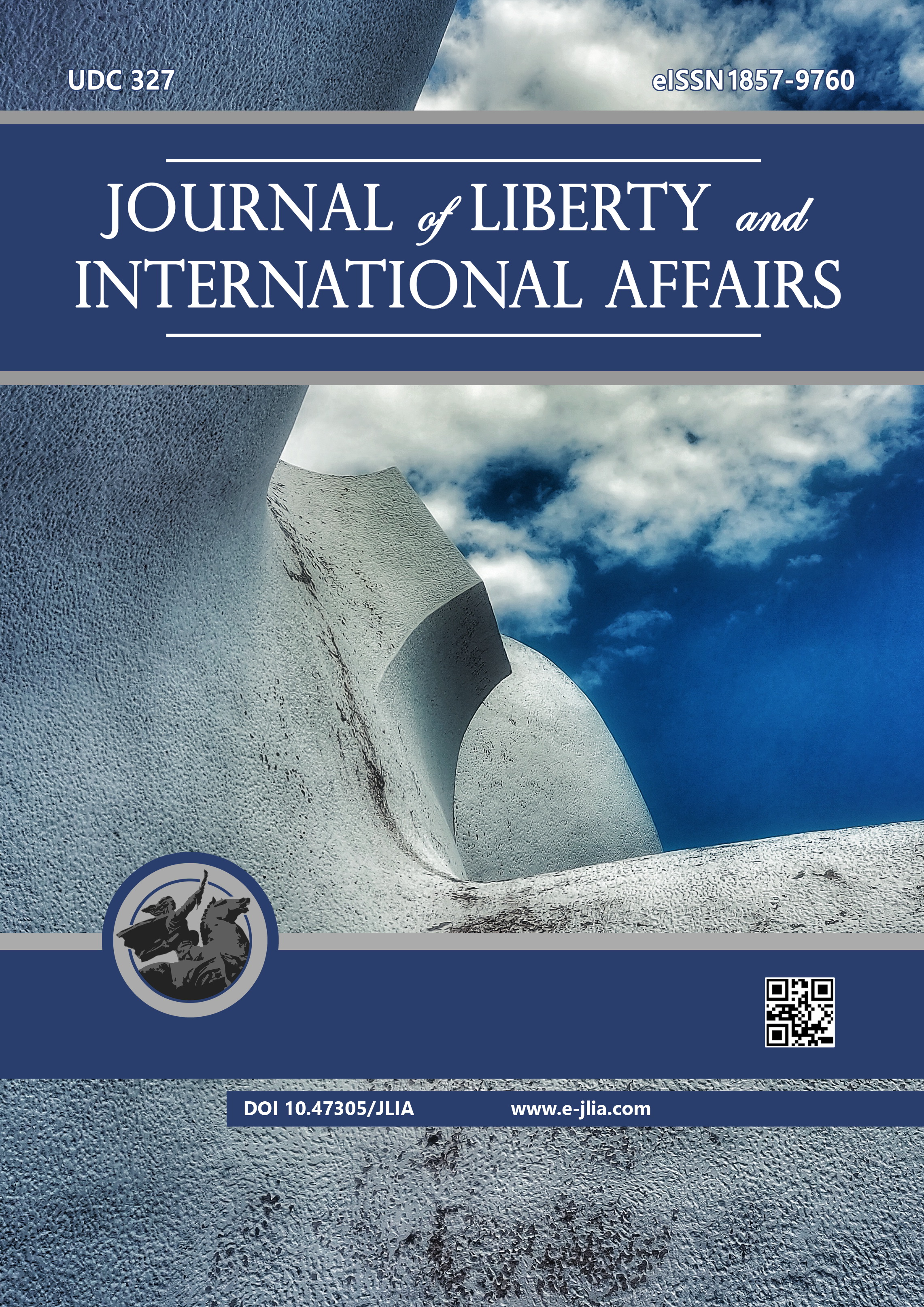THE MIGRATION STRATEGIES AND POSITIONS ON THE EU MIGRATION AND ASYLUM AGENDA: EVIDENCE FROM THE VISEGRAD GROUP COUNTRIES
THE MIGRATION STRATEGIES AND POSITIONS ON THE EU MIGRATION AND ASYLUM AGENDA: EVIDENCE FROM THE VISEGRAD GROUP COUNTRIES
Author(s): Tomáš KajánekSubject(s): Politics / Political Sciences, Politics, Law, Constitution, Jurisprudence, Political Theory, Political Sciences, Civil Society, Governance, Public Administration, Public Law, Government/Political systems, International relations/trade, Welfare systems, Political behavior, Political economy, Politics and law, Politics and religion, Politics and society, Methodology and research technology, Comparative politics, Inter-Ethnic Relations, EU-Approach / EU-Accession / EU-Development, EU-Legislation, Geopolitics, Politics of History/Memory, Politics and Identity, Peace and Conflict Studies, Asylum, Refugees, Migration as Policy-fields
Published by: Institute for Research and European Studies - Bitola
Keywords: Visegrad Group; European Union; Migration; Asylum; Migration and Asylum Policy
Summary/Abstract: At the time of the outbreak of the migration crisis in Europe, the Visegrad Group gained the status of the EU troublemaker due to its opposition to the solidarity and cohesion mechanisms adopted on the European level. The migration strategies (not only) of the individual states of the grouping proved insufficient and unfeasible in times of crisis. However, in the case of the Czech Republic, Hungary, Poland and the Slovak Republic, the absence of national mechanisms and solutions was partially replaced after 2015 by joint declarations and statements rejecting active cooperation in resolving migration and asylum pressures within the EU Single Market. Despite failing to manage migratory pressures since 2015, four Central European countries have not learned their lessons and will face unprecedented crises in 2022 again. This time, however, Visegrad countries became the first-line countries affected by the refugee crisis. The migration and asylum agenda is thus becoming an extremely complex problem within the Visegrad Group region due to the initially intense politicization of the topic by the government elites in individual states. The paper analyses the migration strategies of individual states and the migration and asylum management-related positions after the migration crisis in 2015 and the sequence of events associated with the outbreak of armed conflict in Ukraine in early 2022.
Journal: Journal of Liberty and International Affairs
- Issue Year: 08/2022
- Issue No: 3
- Page Range: 202-219
- Page Count: 18
- Language: English

